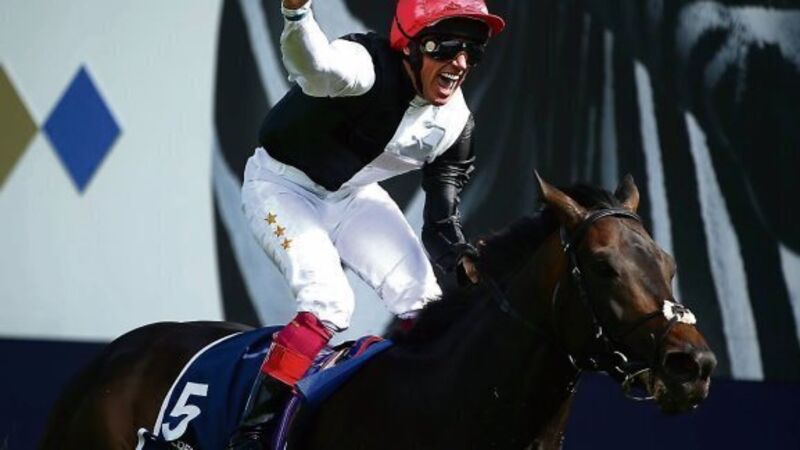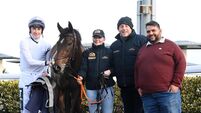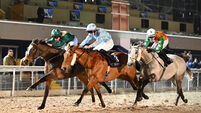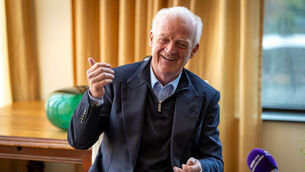Mon, 17 Aug, 2015 - 01:00
Colm Greaves
Uncomplicated and small as they are, they provide convenient shorthand for locating competitions and competitors instantly in their time and place.
1956: The year of Ronnie Delany.
Already a subscriber? Sign in
You have reached your article limit.
Subscribe to access all of the Irish Examiner.
Annual €130 €80
Best value
Monthly €12€6 / month
Introductory offers for new customers. Annual billed once for first year. Renews at €130. Monthly initial discount (first 3 months) billed monthly, then €12 a month. Ts&Cs apply.
CourtsRacingGolden Hornyear ofHorseracingPlace: SouthwellPlace: SligoPlace: AtlanticPlace: YorkPlace: Monmouth ParkPlace: CairoPlace: EnglewoodPlace: EgyptPlace: AscotPerson: Ronnie DelanyPerson: Seamus DarbyPerson: Barry McGuiganPerson: Teddy McCarthyPerson: Aidan O’SheaPerson: FrankelPerson: Sea The StarsPerson: Golden HornPerson: John GosdenPerson: Time TestPerson: Steve CauthenPerson: Bob BaffertPerson: Ahmed ZayatPerson: ZayatPerson: EphraimPerson: AhmedPerson: EgyptiansPerson: pharaohPerson: Anthony OppenheimerPerson: King George VIEvent: Irish DerbyEvent: Juddmonte International StakesEvent: Epsom DerbyEvent: EclipseEvent: Belmont StakesEvent: Haskel International StakesEvent: Queen Elizabeth Diamond StakesOrganisation: CamelotOrganisation: Trading LeatherOrganisation: AustraliaOrganisation: TimeformOrganisation: US Jockey ClubOrganisation: Golden Horn













